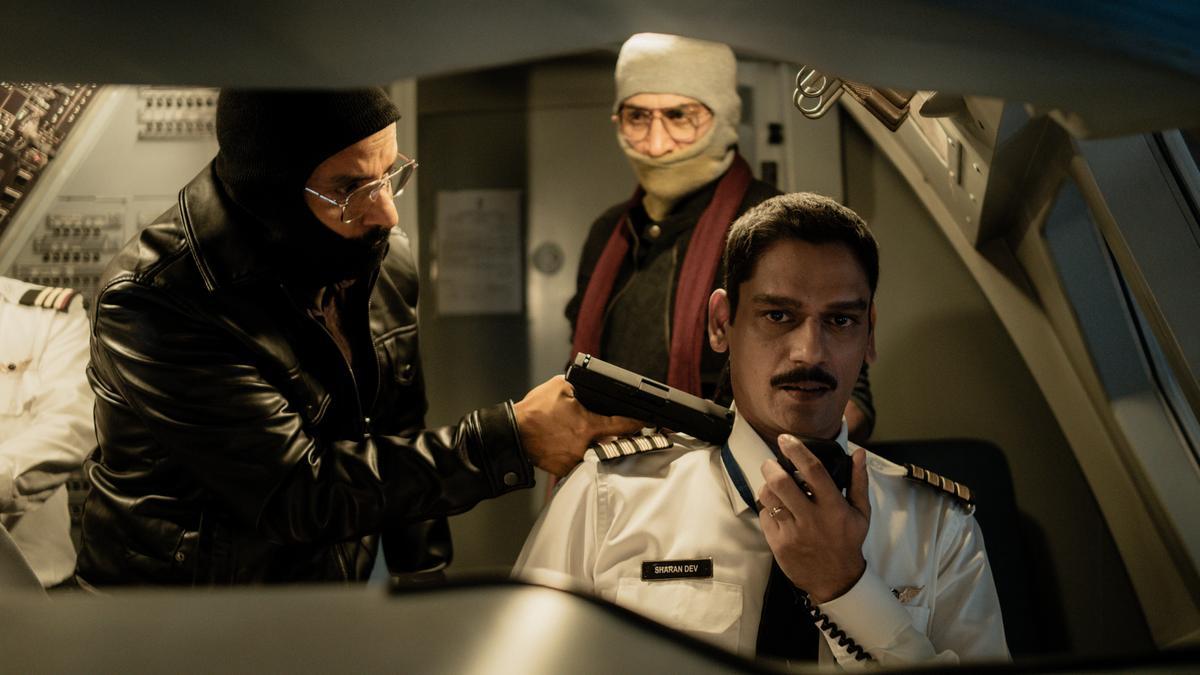
Netflix’s latest web series “IC 814: The Kandahar Hijack” has encountered a significant backlash early this week when several social media users expressed outrage over the names given to the hijackers in the critically-acclaimed series. Consequently, the Information & Broadcasting Ministry summoned Monika Shergill, the content chief of the OTT platform. A public interest litigation has also been filed before the Delhi High Court by Vishnu Gupta, the president of an outfit called ‘Hindu Sena’. The plea alleges that the series distorts the religious identities of the hijackers by naming two of the five hijackers as Bhola and Shankar and calls for the revocation of the series’ certification.
Directed by Anubhav Sinha, the six-episode series depicts the hijacking of the IC-814 flight on December 24, 1999. This tragic event occurred shortly after the Airbus 300 took off from Kathmandu, en route to Delhi. The hijackers diverted the plane to an array of locations, including Amritsar, Lahore, Dubai, and finally to Kandahar in Afghanistan, which was under Taliban control at the time. After six fraught days of negotiations, the Atal Bihari Vajpayee-led NDA government ultimately agreed to release three notorious terrorists—Masood Azhar, Omar Saeed Sheikh, and Mushtaq Ahmad Zargar—in exchange for the safety of the passengers and crew aboard the plane.
The series is partly based on “Flight To Fear,” a first-hand account of the incident by Captain Devi Sharan, the pilot of the plane, co-written with journalist Srinjoy Chowdhury. A disclaimer at the beginning of the series describes it as a work of fiction set against the backdrop of certain real-life events.
The controversy over the names of the hijackers arises from the creative liberties taken by the makers. They did not explicitly state that the terrorists used codenames during the hijacking. The creators presumed this information was implied and did not need explicit clarification, sparking outrage among some viewers.
Multiple journalistic accounts from that period clarify that the hijackers used aliases. They cite a press release from the Union Home Ministry dated January 6, 2000, which disclosed the actual names of the hijackers as Ibrahim Athar, Shahid Akhtar Sayeed, Sunny Ahmed Qazi, Mistri Zahoor Ibrahim, and Shakir.
. The release confirmed the aliases used by the hijackers: “To the passengers of the hijacked plane these hijackers came to be known respectively as (1) Chief, (2) Doctor, (3) Burger, (4) Bhola, and (5) Shankar, the names by which the hijackers invariably addressed one another,” the press release stated.
While the distinction between real names and aliases appears clear to some, the outraged voices mainly focus on the potential future implications. Their concern revolves around the possibility that, as time passes, public memory might blur the details of the hijacking. Amit Malviya, a BJP leader, expressed this sentiment via social media platform ‘X’: “The hijackers of IC-814 were dreaded terrorists, who acquired aliases to hide their Muslim identities. Filmmaker Anubhav Sinha legitimized their criminal intent by furthering their non-Muslim names. Result? Decades later, people will think Hindus hijacked IC-814.”
Although the series does not spell out that Bhola and Shankar are code names in explicit terms, it does unmask ‘Chief’ when negotiations reach an impasse. Journalist Neelesh Misra, who has also written a book on the subject, elaborated on social media that ‘Chief’ was none other than the brother of Masood Azhar. In the context of the series’ narrative, Bhola and Shankar are relatively minor characters, addressed by these code names only once throughout the six episodes.
The controversy raises broader questions about the responsibilities of filmmakers, especially when dealing with real-life events and characters. The delicate balance between creative freedom and historical accuracy becomes a focal point in such discussions. Whether or not this series will face consequences for its portrayal remains to be seen, but it has undeniably ignited a heated debate over representation and historical memory in Indian cinema and television.
As Indian cinema continues to tackle historical and political subjects, the need for clarity, context, and sensitivity becomes ever more paramount. The backlash against “IC 814: The Kandahar Hijack” serves as a sobering reminder of the power of representation and the potential fallout when historical events are reinterpreted for contemporary audiences.












